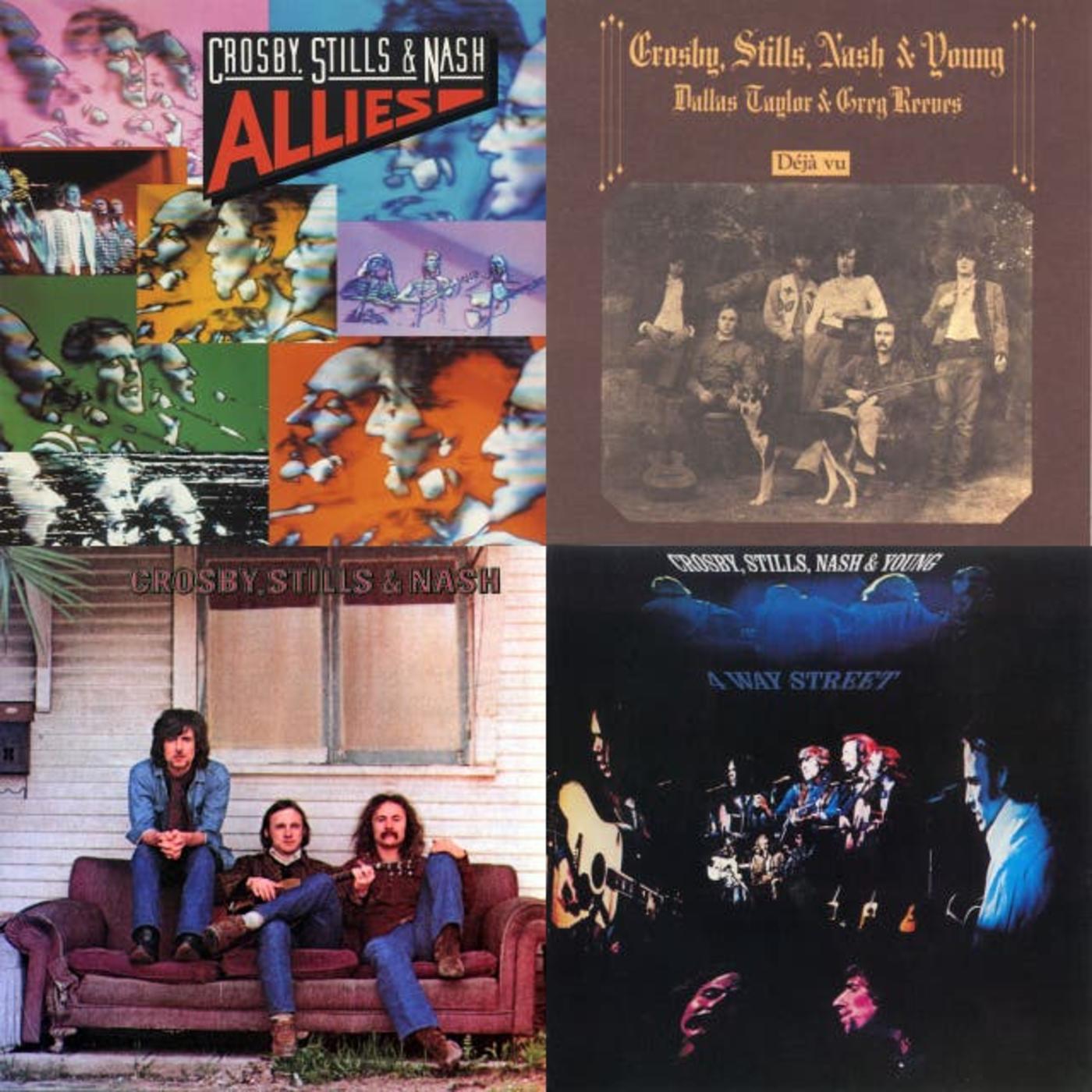The One after the Big One: Crosby, Stills & Nash, DAYLIGHT AGAIN

Crosby, Stills & Nash scored their biggest record as a trio with 1977’s CSN, selling four million copies of the album, which bode well for the group, considering the changing landscape of popular music at that time, with disco on the rise and punk rock scaring lots of people of age to remember CS&N’s early heyday. It took five years to follow up the record, during which time David Crosby developed a debilitating drug addiction and propensity for legal trouble, both of which had led Stephen Stills and Graham Nash to make new music without their troubled bandmate. In fact, according to Dave Zimmer and Henry Diltz’s biography of the band, the pair began recording new songs in 1980 and 1981, using Poco and Eagles bassist Timothy B. Schmidt and Art Garfunkel in place of Crosby, filling out their three-part harmonies without the usual third part.
Both Garfunkel and Schmidt appear on DAYLIGHT AGAIN, the 1982 album that emerged from those sessions as a CS&N record, once Crosby could be coaxed into the studio. There is actually very little of Crosby on the record; he contributes two songs — his own “Delta” and “Might as Well Have a Good Time,” the Judy Henske / Craig Doerge track on which he sings lead — but is hard to spot in many of the songs. That said, they’re two solid contributions; “Delta” is full with harmony vocals that overcome the largely synthesized accompaniment, while “Might as Well” is a moving, elegiac song that benefits from Crosby’s somewhat vulnerable delivery.
DAYLIGHT AGAIN is best known for its two hit singles — “Wasted on the Way” and “Southern Cross.” The former hearkens back to the feel of “Marrakesh Express” or “Helplessly Hoping” in its tight vocals and lighter-than-light acoustic guitars. Lyrically, it’s a plea to let bygones be bygones and approach the future with renewed energy, a not-quite-veiled message from Nash to his cronies, Crosby in particular. “Southern Cross” is a classic Laurel Canyon-esque tale of inward gazing, and of using nature to recover some part of one’s soul given up in a lost love affair. Or something like that. What it does have is a great chorus and a committed performance from Stills on lead vocal (with Nash providing harmony — Crosby does not perform on the song).
The album’s title track closes things with a melancholy meditation on the cost of war — a fitting topic, even decades later. Stills’ haunting chord progression guides a dour soliloquy on the unanswered questions that arise when our young ones are sent to kill or be killed. “Hear the past a-calling / From Armageddon's side,” he sings. “When everyone's talking and no one is listening / How can we decide?” He slips in a snippet of the band’s “Find the Cost of Freedom” at the end, but the decisions he questions are the ones that hang in the air when the needle reaches the innermost ring of the record, the ones the listener must contemplate when the album is done.
For more information, click the buttons below:

